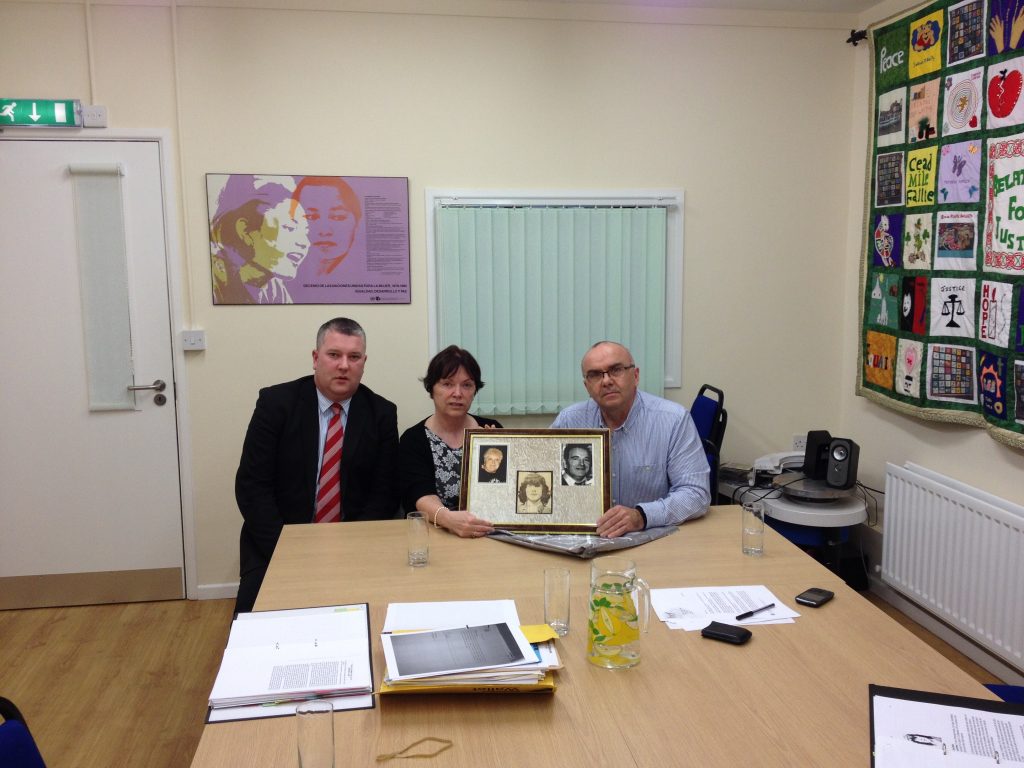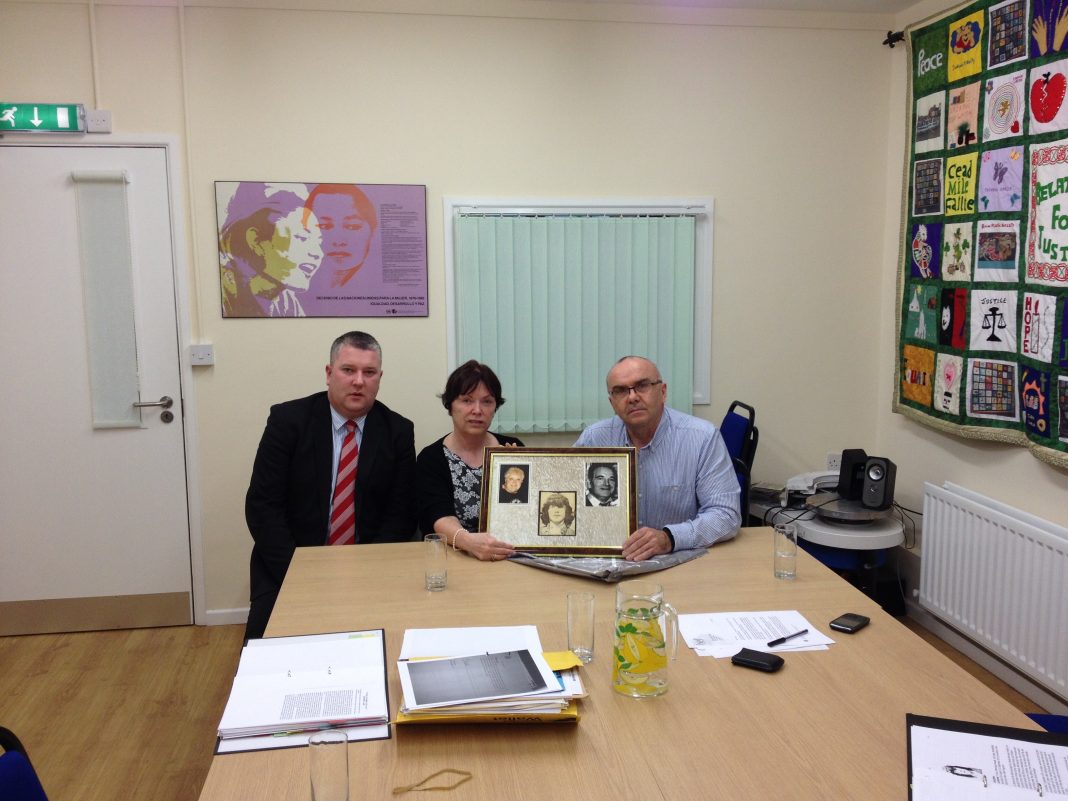
The Attorney General has granted a new inquest into the British army killing of a West Belfast youth in 1975.
Leo Norney, a 17 year old from the Turf Lodge area, was shot dead by members of the Black Watch Regiment on 13th September 1975. At the time of Leo Norney’s killing the British army claimed that they had come under fire from Ardmonagh Gardens in the Turf Lodge area. They said they returned fire hitting the gunman who fell to the ground. The human rights campaigner Father Denis Faul produced a pamphlet at the time that rejected the claims of the army that Leo Norney had been a gunman. Witnesses spoken to by Denis Faul said that Leo Norney had been a passenger in a black taxi that was searched at a checkpoint by members of the Black Watch on the Whiterock Road. Leo Norney got out of the taxi at the top of the Whiterock Road and was making his way across Shepherd’s Path, which ran from the Whiterock Road to Turf Lodge, when he was shot dead.
In 1977 the then Secretary of State Roy Mason in response to a question from the nationalist MP Gerry Fitt confirmed that members of the Black Watch Regiment who had been involved in the Leo Norney shooting had been later convicted of planting ammunition on civilians. This occurred a short time after the shooting of Leo Norney.
Relatives for Justice (RFJ) has welcomed the decision of the Attorney General to grant a new inquest into the death of Leo Norney. Paul Butler said RFJ has supported the Norney family in their campaign to discover the truth as to how their brother Leo was killed by the British Army. Anne Wiggins, Leo Norney’s sister, said the family are pleased that there will be a new inquest into Leo’s death.
“Our mother campaigned for many years to expose the lies that the British army and RUC told about Leo and his alleged involvement in a shooting incident. The British army murdered our brother and a new inquest will mean those soldiers who carried out the killing will be compelled to explain their actions before a court of law.”
Paul Butler, Caseworker in RFJ said that as part of the organisation’s work on the case they discovered documents in the British Government’s National Archives in Kew that exposed the attempts by the British state to label Leo Norney as a gunman. The documents relate to correspondence between the RUC Chief Constable and the head of the British Army. In their correspondence they attempt to discredit the pamphlet Father Faul wrote by trying to back up claims that firearms residue was found on Leo Norney’s hands. What is clear from these official records is that both the RUC Chief Constable and the head of the British army at the time colluded to impugn Leo Norney as having been involved in a shooting incident. “These documents are also an indictment of the HET and its failure to properly investigate state killings. The HET made no efforts to uncover official documents when they were investigating the death of Leo Norney.”
RFJ said they have made the documents available to the Norney family solicitors Madden and Finucane. Fearghal Shields of Madden and Finucane said that the new inquest will be able to cross examine the former soldiers and those in the RUC who were supposed to have investigated the shooting. “It is clear that the Attorney General John Larkin does not believe the version of events given by soldiers at the original inquest. They were not available as witnesses at the initial inquest however they will have to attend a new inquest. Furthermore, the conviction of at least two of the soldiers for offences of the most serious kind casts doubt on their credibility and on the evidence they provided at the original inquest.”











